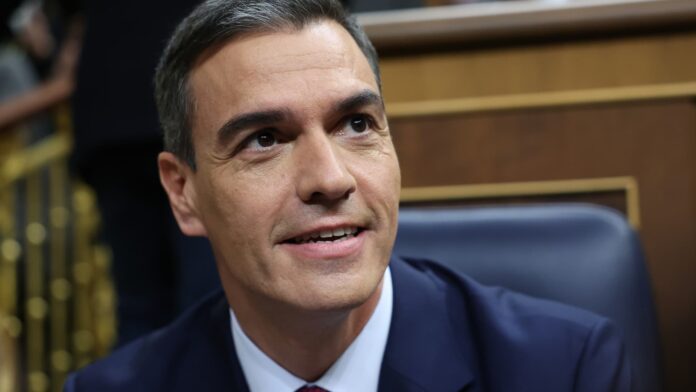Spanish acting Prime Minister Pedro Sanchez during the investiture debate at the Spanish Parliament on Nov. 15, 2023 in Madrid, Spain.
Isabel Infantes | Getty Images News | Getty Images
Spain’s parliament has empowered acting Prime Minister Pedro Sanchez to assemble a government, following two failed investiture attempts from right-wing opposition leader Alberto Núñez Feijóo.
Sanchez, who helms the Spanish Socialist Workers’ Party (PSOE), won 179 votes in favor, with 171 against and no abstentions.
It ends a four-month political deadlock following inconclusive general elections in July, when Feijóo’s People’s Party won a 136 majority of seats, while the Socialists clinched 121. Sanchez himself had called for the vote after his party hemorrhaged losses in regional and municipal elections in late May.
Despite his win at the snap polls, Feijóo’s party failed to garner parliamentary support over two vote attempts, largely because of its alliance with hard-right Vox, whose views include opposing abortion rights and denying climate change.
Sanchez’s own mandate could prove fractious — he has granted numerous concessions in talks with parties from Catalonia, Galicia, the Basque Country and the Canary Island. These include a deal for a contentious amnesty law for Catalan separatists, demanded by Junts and Esquerra, which would absolve hundreds of Catalan separatists found at fault after the region’s secession attempt of 2017. Former Catalonian leader Carles Puigdemont, in self-imposed exile in Belgium, would stand to benefit.
The proposed law has sparked wide protests across Spain.


